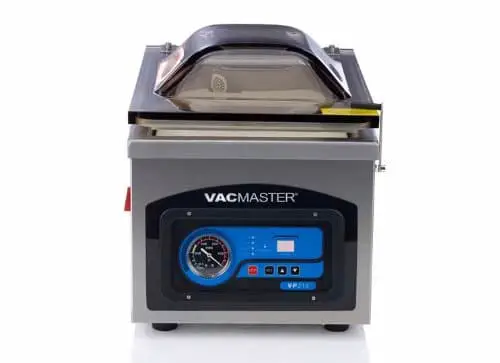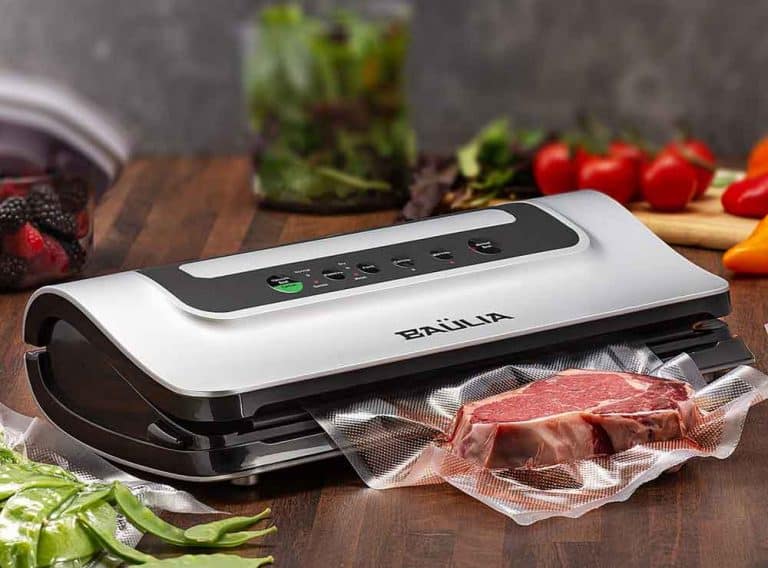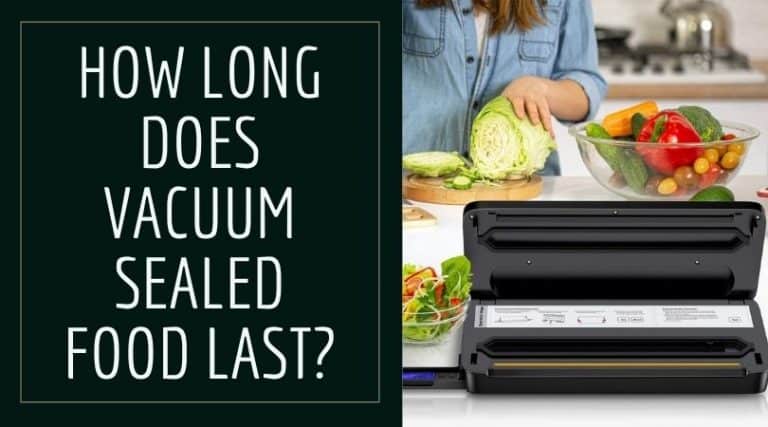Can You Vacuum Seal Eggplant? (Answered)
Key Takeaways
- You can vacuum seal eggplant. This is a great way to preserve the freshness of the vegetable.
- Vacuum sealing will keep eggplant fresh for a longer period of time than other storage methods.
- When vacuuming sealing eggplant, be sure to use a high-quality freezer bag and remove as much air as possible from the bag before sealing it closed.
When it comes to preserving eggplant, vacuum sealing is one of the best methods available. Not only does it extend the shelf life of eggplant, but it also helps prevent freezer burn.
In this article, we’ll show you how to prepare and vacuum-seal eggplant for long-term storage.
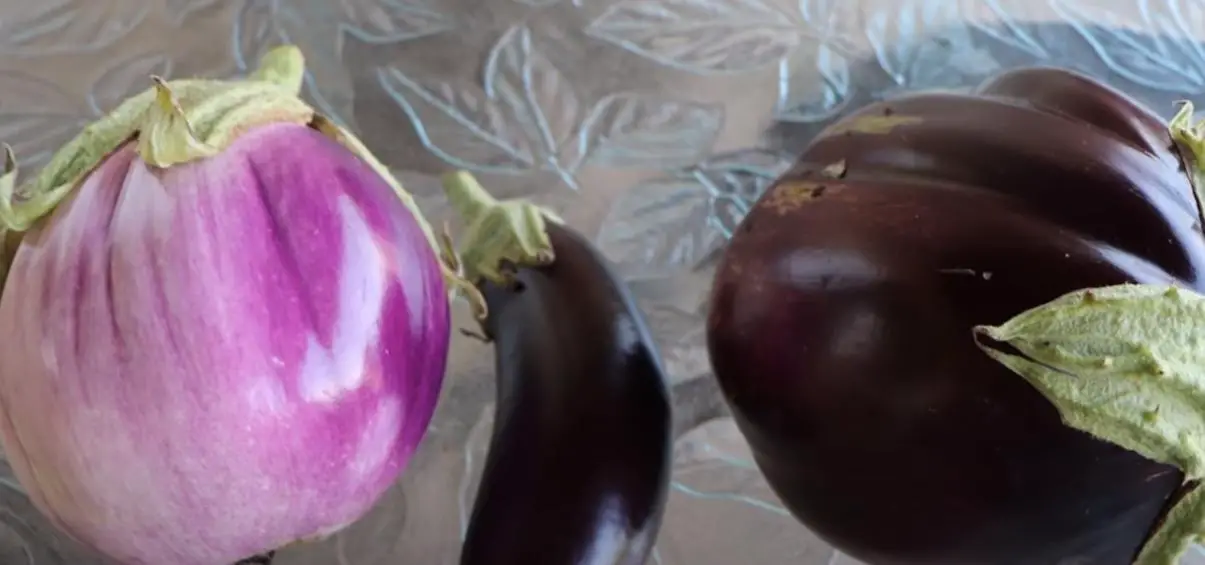
Is it possible to vacuum-seal eggplant?
Yes, it is possible to vacuum seal eggplant. This can be a great way to extend the shelf life of your eggplant and keep it fresh for longer.
Vacuum sealing works by removing all of the air from around the food, which prevents spoilage and keeps food fresh.
When done correctly, vacuuming sealing can prolong the shelf life of eggplant by several days or even weeks.
If you’re interested in trying vacuum sealing with your eggplant, there are a few things you should keep in mind.
First, make sure that your eggplant is clean and dry before sealing. Any moisture on the surface of the eggplant will cause it to spoil more quickly after being sealed.
Second, cut your eggplant into smaller pieces before sealing it if possible. This will help ensure that all of the air is removed from around the food and prevent premature spoiling.
Finally, don’t forget to label your sealed eggplant with the date so you know when it was sealed and how long it will last.
How do you vacuum seal eggplant?
Vacuum sealing is a great way to extend the shelf life of eggplant.
By blanching the vegetable first, you can ensure that it will stay fresh for up to 14 months when stored in a vacuum-sealed bag.
This is a great way to keep your eggplant supply fresh and ready to use, without having to worry about spoilage.
What are the benefits of vacuum-sealing eggplant?
When it comes to preserving the freshness and flavor of eggplant, vacuum sealing is a great option.
Vacuum sealing can help extend the shelf life of eggplant by preventing it from being affected by bacteria and/or molds.
Additionally, vacuum sealing can help preserve the nutrients in eggplant.
When eggplant is exposed to air, it can start to lose its moisture content, which can lead to a loss of nutrients.
Vacuum sealing helps prevent this by keeping the eggplant airtight.
How long can you store eggplant after vacuum sealing it?
If you’re looking for a way to extend the shelf life of your eggplant, vacuum sealing it may be the answer.
Eggplant can be stored for up to five months in a freezer bag, or 14 months in a vacuum-sealed bag. That means you can enjoy fresh eggplant year-round, without having to worry about it going bad.
But how does vacuum sealing work? Basically, by removing all the air from around the eggplant, you’re preventing bacteria and other contaminants from coming into contact with it. This extends its shelf life and prevents spoilage. Plus, it’s easy to do at home with a few simple supplies.
So if you want to enjoy fresh eggplant for longer, give vacuum sealing a try. It’s an easy way to keep your eggplant fresh and delicious for months on end.
Do you need to blanch eggplant before vacuum sealing them?
If you’re planning on vacuum sealing your eggplant, it’s important to blanch them first. Blanching helps to preserve the eggplant’s color, texture, and flavor. It also makes them easier to seal.
Here’s a quick guide on how to blanch eggplant before vacuum sealing:
- Cut the eggplant into pieces that will fit into your vacuum sealer bag
- Bring a pot of water to a boil and add the eggplant pieces
- Boil for 3-5 minutes, or until the eggplant is slightly softened
- Remove from heat and immediately transfer to an ice bath (this will stop the cooking process)
- Drain well and pat dry with paper towels before vacuum sealing in bags
What happens if you don’t blanch the eggplant before trying to vacuum seal them?
Vacuum sealing is a great way to extend the shelf life of food, but not all foods are created equal.
Eggplant, for example, can be more tricky to preserve using this method. If you don’t blanch eggplant before trying to vacuum seal them, they may not last as long in the freezer.
Other methods of preserving eggplant, such as baking, roasting, or steaming, may be more effective in extending its shelf life.
Can you freeze raw, unblanched eggplant and then vacuum seal them?
You can freeze raw, unblanched eggplant and then vacuum seal them. Blanched eggplant will last 2-3 weeks in the fridge, 5 months in a freezer bag, or 14 months when vacuum sealed. This is a great way to extend the shelf life of your eggplant so that you can enjoy it for longer.
Vacuum sealing is a great way to preserve food. It keeps food fresh for longer by removing air from the packaging. This prevents oxidation and degradation of the food. Vacuum sealing is also great for preventing freezer burn.
There are many benefits to freezing eggplant before vacuum sealing it. Freezing helps to keep nutrients intact and prevent bacteria from growing. It also makes the eggplant easier to slice and dice when you are ready to use it.
How do people usually cook frozen, vacuum-sealed eggplant?
When it comes to cooking frozen, vacuum-sealed eggplant, there are a few different methods that people typically use. The most common method is to bake the eggplant, then freeze it on a cookie sheet.
This helps to lock in the moisture and prevent the eggplant from drying out. Another popular method is to sauté the eggplant before freezing it. This can help to enhance the flavor and make it more versatile for use in different recipes.
What is the best way to thaw out frozen, vacuum-sealed eggplant?
If you’re like most people, you probably don’t think much about how to thaw out frozen food. After all, it’s just a matter of putting it in the microwave or oven, right?
Wrong. If you want to get the best results from your frozen food, there is a certain way to thaw it out that will ensure that it retains its flavor and texture.
And when it comes to vacuum-sealed eggplant, the best way to thaw it out is by removing it from the freezer and thawing it in the fridge overnight.
Here’s why this method works so well for vacuum-sealed eggplant. When eggplant is frozen, the water inside its cells expands and breaks through the cell walls.
This damage can cause the eggplant to become mushy and lose its flavor once thawed.
However, by slowly thawing it out in the fridge overnight, the water has time to reabsorb back into the cells before they burst, resulting in a more flavorful and textured final product.
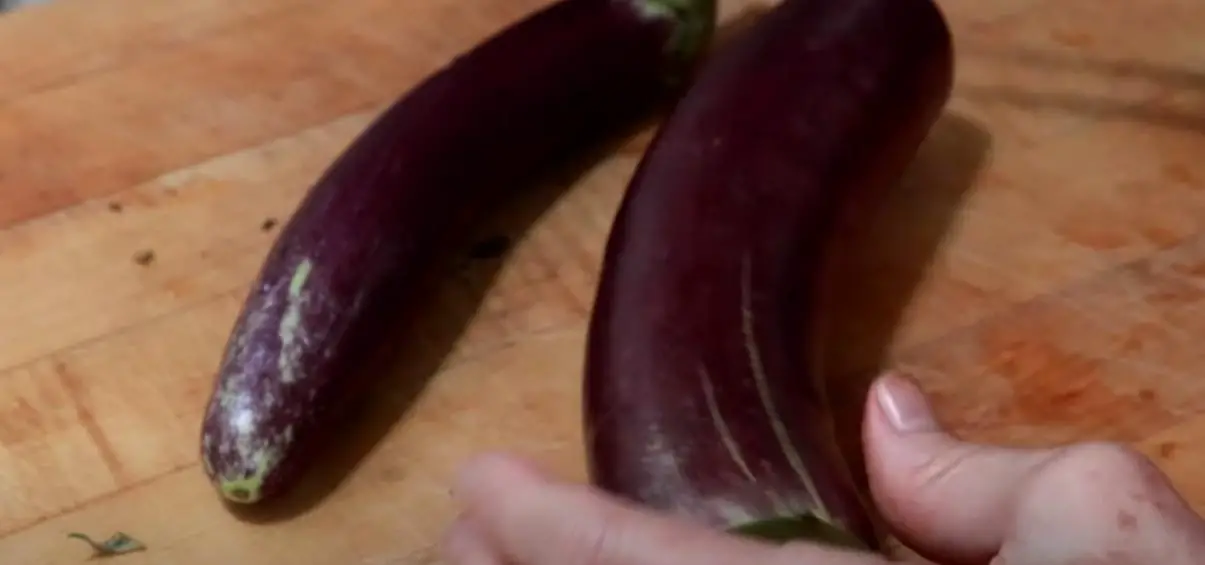
Final Verdict
Yes, you can vacuum-seal eggplant. This is a great way to keep the vegetable fresh for longer periods of time. Vacuum sealing also helps to preserve the flavor and texture of the eggplant.
